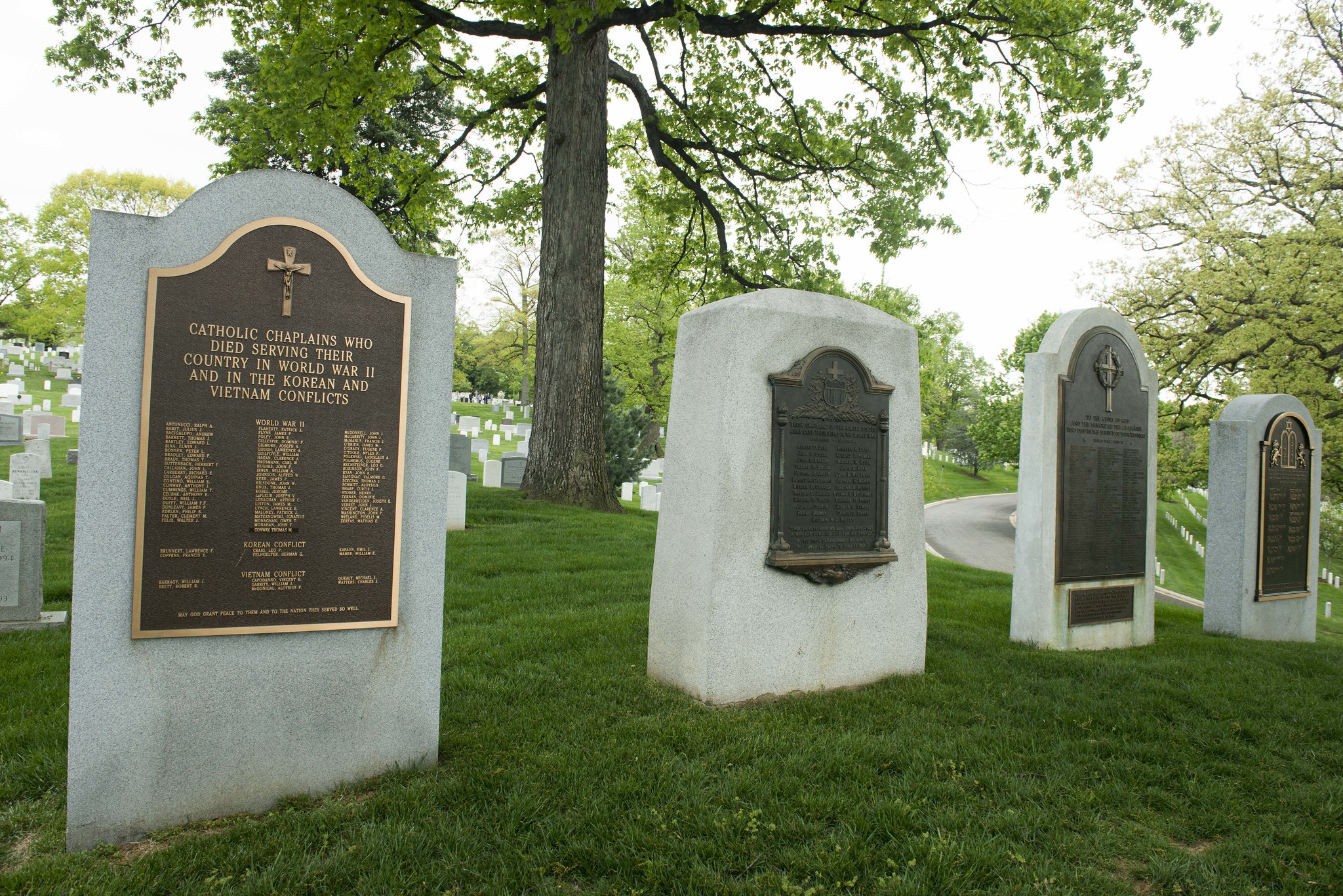Chaplains Hill Monuments

Military chaplains from four wars rest on Chaplains Hill in Section 2 of Arlington National Cemetery. Those buried here include the Army's first chief of chaplains, Col. John T. Axton, a veteran of World War I; World War II's chief of chaplains, Maj. Gen. William R. Arnold, who was the first chaplain to become a general; and Maj. Charles Joseph Watters, who served in Vietnam and posthumously received the Medal of Honor for his selfless actions on November 19, 1967. Unarmed, Watters was aiding fallen comrades when he was killed by a bomb explosion.
On May 5, 1926, chaplains who served in World War I dedicated the Chaplains Monument to 23 chaplains who died in that war. Two quotations are inscribed on the cenotaph: "Greater love hath no man than this, that a man lay down his life for his friends" (the Bible, John 15:13) and "To you from failing hands we throw the torch — be yours to hold it high" (from John McCrae's famous commemorative poem, "In Flanders Fields").
A second monument, to 134 Protestant chaplains who lost their lives in the two world wars, was dedicated on October 26, 1981. It bears the inscription, "To the glory of God and the memory of the chaplains who died in the service of their country, World War I and II."
A monument to 83 Catholic chaplains who died in World War II, the Korean War and the Vietnam War was dedicated on May 21, 1989. Father (Maj.) William Barragy, the first American chaplain to die in Vietnam, is among those named on the monument. Barragy was killed on May 4, 1966, in a helicopter crash with 20 men on a mission for the Army's 101st Airborne Division, and posthumously received the Legion of Merit. The monument's inscription reads, "May God grant peace to them and to the nation they served so well."
Most recently, a monument to 14 Jewish chaplains who died on active duty in the U.S. armed forces was dedicated on October 24, 2011. Its inscriptions include a Biblical quotation: "They were swifter than eagles, they were stronger than lions" (Samuel II, 1:22).